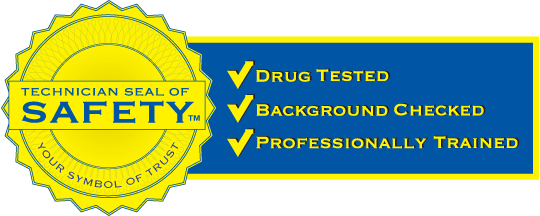As homeowners, we are often faced with the dilemma of whether to replace or repair our furnace. This crucial decision can impact both our comfort and our finances, and is not one to be taken lightly. On that note, it’s worth weighing the pros and cons of both options—furnace replacement and repair—to help you make an informed decision. So, whether your furnace is exhibiting signs of wear and tear, or you’re simply considering an upgrade, let this be your detailed roadmap to a warmer, more energy-efficient home.
Furnace Repair: Advantages and Disadvantages
Pros of Furnace Repair:
- Lower Initial Cost: One of the most significant advantages of repairing your furnace is the lower initial cost compared to a full replacement. Depending on the issue, a repair can be relatively affordable and may give your heating system several more years of reliable operation.
- Faster Solution: Repairing a malfunctioning furnace is often a faster option than installing a new one, making it more convenient for homeowners who need a quick solution to their heating problems. Dependable professionals can diagnose and fix many common issues within a short time frame.
- Environmental Impact: By repairing and extending the life of your current furnace, you can help reduce waste and energy consumption associated with manufacturing and installing new units.
Cons of Furnace Repair:
- Short-Term Fix: A repair may only provide a temporary solution to the problem, especially if your furnace is reaching the end of its lifespan or has recurring issues. In such cases, continual repairs could become costly over time.
- Energy Efficiency: Older furnaces are generally less energy-efficient compared to newer, technologically advanced models. Repairing an older furnace might not provide the energy savings that a replacement could offer.
- Limited Warranty: Repairs on your furnace may not come with an extended warranty, leaving you vulnerable to additional costs if the same issue or another problem arises in the future.
Furnace Replacement: Advantages and Disadvantages
Pros of Furnace Replacement:
- Improved Energy Efficiency: Newer furnace models typically come with higher energy efficiency ratings, translating to lower energy bills and reduced environmental impact. Upgrading to a new furnace can provide long-term energy savings, especially if your current system is outdated.
- Increased Home Value: A new furnace can boost your home’s value, making it an attractive selling point to potential buyers. Prospective homeowners often prefer properties with updated heating systems, since it means fewer worries about maintenance and repairs.
- Longer Lifespan: Modern furnaces are designed to last longer than their older counterparts, often up to 20 years or more with regular maintenance. Investing in a new furnace may provide long-term peace of mind, eliminating the need for frequent repairs.
- Enhanced Comfort: Upgrading to a new furnace can improve your home’s overall comfort by providing more consistent and even heating. Advanced features, such as variable-speed motors and multi-stage heating, allow better temperature control throughout your living space.
- Warranty Coverage: New furnaces typically come with a manufacturer’s warranty that covers parts and labor for a certain period. This assurance can help protect your investment, giving you confidence in the performance and reliability of your new heating system.
Cons of Furnace Replacement:
- Higher Initial Cost: The most notable downside to furnace replacement is the higher upfront cost compared to repair. A new furnace can be a significant investment, though its long-term benefits often outweigh this initial expense.
- Installation Time: Replacing a furnace typically involves more time and effort compared to repairing an existing unit, especially if modifications to your home’s ductwork or infrastructure are necessary.
Factors to Consider When Deciding Between Repair and Replacement
- Age of Your Furnace: The age of your current furnace plays a crucial role in determining whether repair or replacement is the better option. If your system is nearing the end of its average lifespan (usually around 15-20 years), it may be more economical to invest in a new furnace.
- Frequency of Repairs: If your furnace requires constant repairs, it’s probably time to consider a replacement. In the long run, the cumulative cost of numerous repairs could surpass the expense of a new system.
- Current Energy Efficiency: Assess the energy efficiency of your existing furnace in comparison to newer models. If there’s a significant difference, you may want to invest in a more efficient system to save on energy bills and reduce your environmental footprint.
- Overall Comfort: Evaluate the comfort level in your home. If you’re experiencing uneven temperatures or struggling with humidity control, it might be time to consider a furnace replacement that addresses these issues.
As a homeowner, making the choice between furnace repair and replacement is an essential decision that contributes to your home’s comfort, energy efficiency, and long-term value. By considering the pros and cons of each option, taking into account factors like the age of your furnace, repair frequency, and your current energy efficiency, you can make an informed decision and select the best course of action for your unique situation.
The Right Choice for Your Home: Repair or Replace
In essence, the choice between furnace repair and replacement demands careful consideration of various factors, including the furnace’s age, efficiency, repair history, and the potential energy savings from a new furnace. It’s a balance between the short-term savings from repair and the long-term benefits of replacement.
Remember, there’s no one-size-fits-all answer when it comes to your furnace. When you’re ready to make a decision, rely on our HVAC contractors in Stillwater to provide expert advice and assist you in choosing the right solution for your home’s heating needs. Contact Sitton Mechanical today to schedule a consultation, and let us help you make the most informed choice for your comfort, energy savings, and overall satisfaction.




